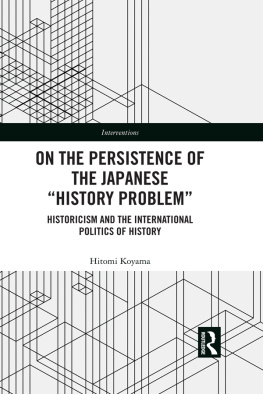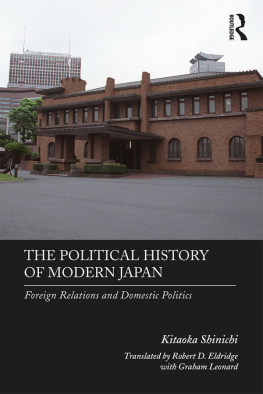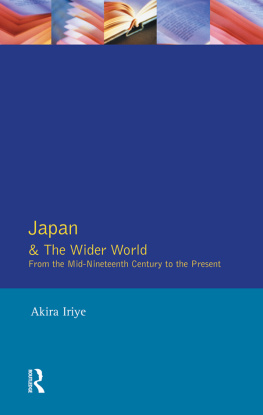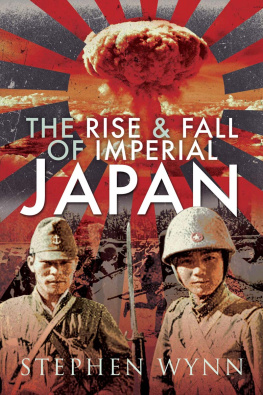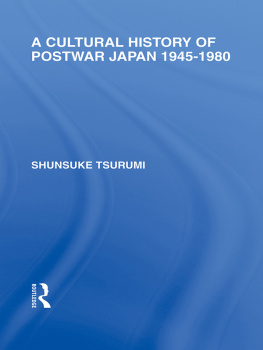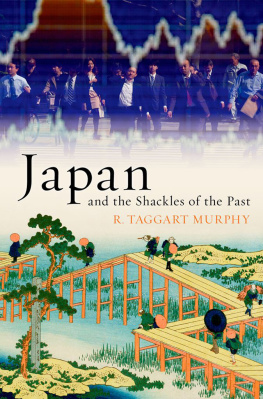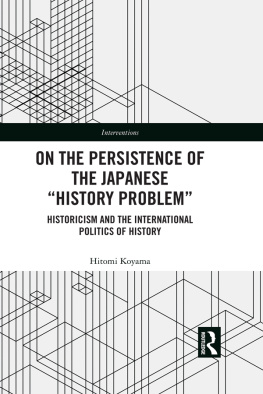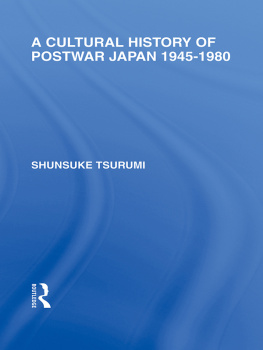First published 2018
by Routledge
2 Park Square, Milton Park, Abingdon, Oxon OX14 4RN
and by Routledge
711 Third Avenue, New York, NY 10017
Routledge is an imprint of the Taylor & Francis Group, an informa business
2018 Hitomi Koyama
The right of Hitomi Koyama to be identified as author of this work has been asserted by her in accordance with sections 77 and 78 of the Copyright, Designs and Patents Act 1988.
All rights reserved. No part of this book may be reprinted or reproduced or utilised in any form or by any electronic, mechanical, or other means, now known or hereafter invented, including photocopying and recording, or in any information storage or retrieval system, without permission in writing from the publishers.
Trademark notice : Product or corporate names may be trademarks or registered trademarks, and are used only for identification and explanation without intent to infringe.
British Library Cataloguing-in-Publication Data
A catalogue record for this book is available from the British Library
Library of Congress Cataloging-in-Publication Data
A catalog record has been requested for this book
ISBN: 978-1-138-08972-3 (hbk)
ISBN: 978-1-315-10906-0 (ebk)
Typeset in Times New Roman
by Apex CoVantage, LLC

Interventions
Edited by Jenny Edkins
Aberystwyth University
Nick Vaughan-Williams
University of Warwick
The Series provides a forum for innovative and interdisciplinary work that engages with alternative critical, post-structural, feminist, postcolonial, psychoanalytic and cultural approaches to international relations and global politics. In our first 5 years we have published 60 volumes .
We aim to advance understanding of the key areas in which scholars working within broad critical post-structural traditions have chosen to make their interventions, and to present innovative analyses of important topics. Titles in the series engage with critical thinkers in philosophy, sociology, politics and other disciplines and provide situated historical, empirical and textual studies in international politics .
We are very happy to discuss your ideas at any stage of the project: just contact us for advice or proposal guidelines. Proposals should be submitted directly to the Series Editors:
- Jenny Edkins () and
- Nick Vaughan-Williams ().
As Michel Foucault has famously stated, knowledge is not made for understanding; it is made for cutting In this spirit The Edkins Vaughan-Williams Interventions series solicits cutting edge, critical works that challenge mainstream understandings in international relations. It is the best place to contribute post disciplinary works that think rather than merely recognize and affirm the world recycled in IRs traditional geopolitical imaginary.
Michael J. Shapiro, University of Hawaii at Manoa , USA
On the Persistence of the Japanese History Problem
Historicism and the International Politics of History
Hitomi Koyama
Ontological Entanglements, Agency and Ethics in International Relations
Exploring the Crossroads
Laura Zanotti
For more information about this series, please visit: www.routledge.com/series/INT
Contents
Guide
A dandelion seed nestles in red soil, sequestered apart from the busy street and is given time. Before long, concrete is poured atop. I want to thank Renee Marlin-Bennett for reminding me that there is an option other than withering, Jennifer Culbert for constant support and encouragement, P.J. Brendese for patiently going through multiple drafts, and Sibagro for having cultivated such a space for a weed to grow at Johns Hopkins. Fragments of this book were written and shared over the years in many places among endearingly critical companies both near and afar, in Baltimore, Sydney, and Kyoto, and at various conference sites in International Studies Association and American Political Science Association, and in workshops at Yonsei University in Seoul, at Kyoto University in Kyoto, and at the National Taiwan University in Taipei. I thank Nicola Parkin and Jenny Edkins at Routledge Interventions Series for publishing this book, and Himadeep Muppidi and Mustapha Pasha for putting me in touch with Jenny. I am indebted to the generous research funding offered by Ryukoku Universitys Afrasian Research Centre in Kyoto, and to be offered a space to finish the manuscript in an abandoned library in southern Kyoto. Thomas J. Mathew has been a patient copyeditor and pleasure to work with. Earlier versions have been thoughtfully edited by Casey McNeill, Timothy Vasko, Greg Sesek, and Mariam Banahi. More raw versions of my writings and thoughts have been in the making over countless exchanges with my intellectually generous cohorts in Baltimore. I am fortunate to be at Hopkins at a time when I could easily bump into Nobutaka Otobe, Aditi Saraf, Tulio Zille, Ben Meiches, Chad Shomura, Dot Kwek, Derek Denman, Alex Barder, Nate Gies, Andrew Brandel, and Daniel Levine. A special thanks goes to Osamu Koshimizu at Sannin-sha Publisher in Kyoto who introduced me to Suga Syuichi at Hanazono University, who generously gave me the permission to take photographs of his collection of wartime and postwar textbooks. Part of the chapters is based on the reuse of an earlier publication at Contexto Internacional: Journal of Global Connections , Historicism, Coloniality, and Culture in Wartime Japan Vol. 38 (3) Sep/Dec 2016 http://dx.doi.org/10.1590/50102-8529.2016380300003, the licensor is not represented as endorsing the use made of the work. Carrying out a book project while on the road without anchor would not have been possible without the support of Ching-Chang Chen, Shine Choi, Kosuke Shimizu, Cameron Shepherd, L.H.M. Ling, Mustapha Pasha, and Barry Buzan.
I would like to thank my family for their support and patience, despite the subject of my work being a thorny issue for contemporary Japan. Finally, I would like to dedicate this book to Mr. Abe Kang. The grace and generosity you extended to my family in Virginia sustained me at moments when the world felt too fraught with hate, thoughtless words, and violence. You were fighting to breathe till the very last moment and left with grace as I was still holding your hand. I wish I could have thanked you in person today. I miss you.
On the Persistence of the Japanese History Problem
In Japan, people often refer to August 15, 1945, as the end of that war. But the duration of that war remains vague. At times, it refers to the fifteen years of war in the Asia-Pacific. At others, it refers to an imagination of the century-long struggle between the East and the West that characterized much of the nineteenth century. This latter dramatization in particular reinforces long-standing Eurocentric and Orientalist discourses about historical development that presume the non-West lacks historical agency. Nearly seventy-five years since the nominal end of the war, Japans history problem a term invoking the nations inability to come to terms with its imperial past persists throughout Asia today.
Going beyond well-worn clichs about the states use and abuse of discourses of historical modernity, Koyama shows how the inability to confront the debris of empire is tethered to the deferral of agency to a hegemonic order centered on the United States. The present is thus a moment one stitched between the disavowal of responsibility on the one hand, and the necessity of becoming a proper subject of history on the other. Behind this seeming impasse lie questions about how to imagine the state as the subject of history in a postcolonial moment after grand narratives, after patriotism, and after triumphalism.

